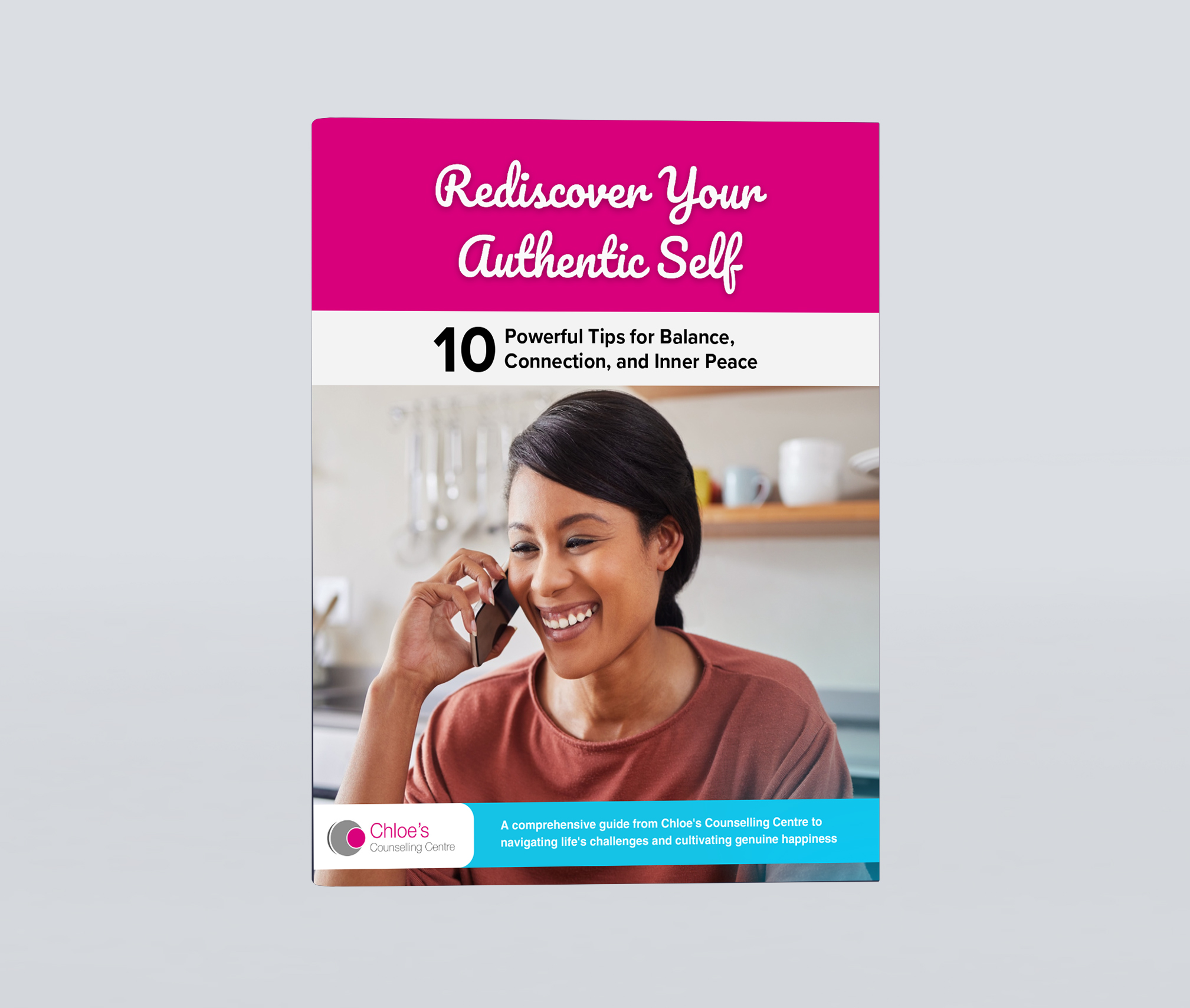
Understanding Depression: How Person-Centred Therapy Can Help You Reclaim Joy
The Reality of Depression in the West Midlands
Depression is a complex mental health condition that affects millions of people across the UK, including many here in the West Midlands. In our region, with its mix of urban centres like Birmingham and Coventry, and more rural areas, depression can manifest in various ways, influenced by factors such as social isolation, economic pressures, and the fast pace of modern life.
It’s crucial to understand that depression is more than just feeling sad. It’s a persistent low mood that can affect every aspect of life, from work and relationships to physical health and self-esteem. In the West Midlands, as elsewhere, depression doesn’t discriminate – it can affect anyone, regardless of age, background, or life circumstances.
Recognising the Signs of Depression
Identifying depression is the first step towards seeking help. Common signs include:
- Persistent feelings of sadness, emptiness, or hopelessness
- Loss of interest in activities once enjoyed
- Changes in appetite or sleep patterns
- Fatigue or loss of energy
- Difficulty concentrating or making decisions
- Feelings of worthlessness or excessive guilt
- Physical symptoms like headaches or backaches
- Thoughts of death or suicide
If you’re experiencing several of these symptoms for more than two weeks, it may be time to seek professional support. Remember, reaching out for help is a sign of strength, not weakness.
Understanding Person-Centred Therapy
At Chloe’s Counselling, we specialise in person-centred therapy, an approach that can be particularly effective in treating depression. But what exactly is person-centred therapy?
Developed by psychologist Carl Rogers, person-centred therapy is based on the belief that every individual has the inner resources for growth and healing. This approach focuses on creating a supportive, non-judgmental environment where you can explore your thoughts and feelings freely.
Key principles of person-centred therapy include:
- Unconditional positive regard: Your therapist accepts you without judgment, creating a safe space for exploration.
- Empathy: Your therapist strives to understand your experiences from your perspective.
- Genuineness: Your therapist is authentic and present in your sessions.
- Self-direction: You are viewed as the expert on your own life, capable of making positive changes.
This approach can be particularly powerful in addressing depression, as it empowers you to reconnect with your inner strengths and find your own path to healing.
How Person-Centred Therapy Helps with Depression
Person-centred therapy can be highly effective in treating depression. Here’s how:
- Creating a safe space: Depression often comes with feelings of shame or self-blame. In person-centred therapy, you’re provided with a non-judgmental space to explore your emotions fully.
- Fostering self-understanding: Through gentle guidance and active listening, your therapist encourages you to reflect on your experiences, beliefs, and values. This can lead to profound insights about the roots of your depression.
- Building self-acceptance: Depression often involves harsh self-criticism. The unconditional positive regard offered in person-centred therapy can help you develop a more accepting and compassionate relationship with yourself.
- Reconnecting with your authentic self: Depression can make you feel disconnected from yourself and others. Person-centred therapy helps you reconnect with your authentic feelings, needs, and desires.
- Empowering personal growth: Instead of focusing solely on eliminating symptoms, person-centred therapy emphasises personal growth and self-actualisation. This can help you move beyond merely managing depression to leading a more fulfilling life.
Through this process, many people find they can gradually reclaim the joy and vitality that depression had diminished.
The Person-Centred Journey Through Depression
Overcoming depression with person-centred therapy is a unique journey for each individual, but there are some common elements you might experience:
- Establishing safety: The first stage involves building a trusting relationship with your therapist, where you feel safe to express yourself fully.
- Exploring your experience: You’ll have the opportunity to explore your feelings, thoughts, and experiences related to depression at your own pace.
- Uncovering patterns: Through this exploration, you may start to notice patterns in your thoughts or behaviours that contribute to your depression.
- Reconnecting with your values: As you gain clarity, you might rediscover what’s truly important to you, which depression may have obscured.
- Experimenting with new ways of being: The safe space of therapy allows you to try out new thoughts, feelings, or behaviours.
- Integrating changes: Gradually, you’ll work on integrating these new ways of being into your daily life.
- Rediscovering joy: As you progress, you may find yourself more able to experience moments of joy and connection.
Remember, this journey is not linear. There may be setbacks along the way, but these are a normal part of the healing process.

Person-Centred Techniques for Managing Depression
While person-centred therapy emphasises your innate capacity for growth, your therapist may introduce various techniques to support your journey. These might include:
- Active listening: Your therapist will listen attentively, helping you feel truly heard and understood.
- Reflection: By reflecting back your thoughts and feelings, your therapist helps you gain clarity and insight.
- Open-ended questions: These encourage you to explore your experiences more deeply.
- Focusing: This technique helps you tune into your bodily sensations and emotions.
- Expressive arts: Using creative methods like drawing or writing to express feelings that are hard to put into words.
These techniques are always used flexibly, tailored to your individual needs and preferences.
Combining Person-Centred Therapy with Other Treatments
While person-centred therapy can be highly effective on its own, it can also be combined with other treatments for depression. This might include:
- Medication: For some people, antidepressants can be helpful alongside therapy.
- Lifestyle changes: Exercise, nutrition, and sleep hygiene can all play a role in managing depression.
- Social support: Connecting with others, whether through support groups or strengthening personal relationships, can be beneficial.
- Mindfulness practices: Techniques like meditation can complement the self-awareness developed in therapy.
Your therapist can work with you to determine the most appropriate combination of treatments for your individual situation.
Overcoming Barriers to Seeking Help
Despite the effectiveness of therapy, many people in the West Midlands hesitate to seek help for depression. Common barriers include:
- Stigma: There’s still some societal stigma around mental health issues.
- Cost: Concerns about the expense of therapy.
- Time: Worries about fitting therapy into a busy schedule.
- Hopelessness: Depression itself can make it hard to believe that things can improve.
At Chloe’s Counselling, we understand these concerns. We offer flexible scheduling, including evening and weekend appointments, and we’re committed to making therapy as accessible as possible. Remember, seeking help is a courageous step towards reclaiming your joy and wellbeing.
Supporting a Loved One with Depression
If someone you care about is struggling with depression, here are some ways you can support them:
- Listen without judgment
- Encourage them to seek professional help
- Offer practical support, like helping with daily tasks
- Learn about depression to better understand their experience
- Take care of your own mental health too
Remember, while your support is valuable, professional help is often necessary for managing depression effectively.
Your Journey to Reclaiming Joy Starts Here
Living with depression can feel overwhelming, but you don’t have to face it alone. At Chloe’s Counselling, we’re here to support you on your journey to reclaiming joy and vitality in your life.
Our person-centred approach means that you’ll be met with warmth, empathy, and genuine care. We believe in your innate capacity for growth and healing, even if depression has made that hard to see right now.
Taking the first step can be the hardest part, but it’s also the most courageous. Whether you’re reaching out for the first time or returning to therapy, we’re here to walk alongside you on your path to healing.
Remember, depression is not your fault, and it doesn’t define you. With support and the right tools, you can rediscover hope, meaning, and joy in your life.
Are you ready to begin your journey towards healing and self-discovery?
Book Your Person-Centred Therapy Session Today
Your path to reclaiming joy starts with a single step. Let’s take that step together.
Learn More
5 Powerful Person-Centred Techniques for Managing Anxiety in Birmingham
Understanding Anxiety in Birmingham’s Urban Landscape
Living in a vibrant city like Birmingham comes with its unique set of challenges. The fast-paced urban life, coupled with the pressures of work, relationships, and personal growth, can often lead to feelings of anxiety. At Chloe’s Counselling, we understand that each individual’s experience with anxiety is unique, which is why we advocate for a person-centred approach to managing these feelings.
In this article, we’ll explore five powerful person-centred techniques that can help you manage anxiety, tailored specifically for the residents of Birmingham and the West Midlands. These techniques are grounded in the belief that you have the inner resources to overcome your challenges, and our role is to help you unlock these capabilities.
1. Mindful Grounding in Birmingham’s Green Spaces
Birmingham, despite being a bustling city, is blessed with numerous parks and green spaces. These oases of calm provide the perfect backdrop for our first anxiety management technique: mindful grounding.
How it works:
- Choose your space: Visit one of Birmingham’s beautiful parks, such as Cannon Hill Park or Sutton Park.
- Connect with nature: Find a quiet spot and sit comfortably.
- Engage your senses: Notice five things you can see, four things you can touch, three things you can hear, two things you can smell, and one thing you can taste.
- Breathe deeply: Take slow, deep breaths, focusing on the fresh air entering and leaving your body.
- Reflect: Acknowledge your feelings without judgement, remembering that you are separate from your anxiety.
This technique helps you reconnect with the present moment, pulling you out of anxious thoughts about the future or past. By grounding yourself in Birmingham’s natural surroundings, you create a peaceful anchor amidst the urban hustle.
2. Expressive Arts Therapy: Tapping into Birmingham’s Creative Spirit
Birmingham has a rich artistic heritage, from the Pre-Raphaelites to contemporary street art. Drawing inspiration from this creative energy, expressive arts therapy can be a powerful tool for managing anxiety.
How it works:
- Choose your medium: This could be painting, drawing, clay modelling, or even creative writing.
- Express freely: Without judgement or concern for artistic skill, use your chosen medium to express your feelings.
- Reflect on your creation: What does your artwork tell you about your anxiety? What feelings or thoughts does it evoke?
- Share if comfortable: Discussing your creation with a counsellor can provide new insights into your anxiety.
This person-centred technique allows you to externalise your anxiety, making it easier to examine and understand. It taps into your innate creativity, fostering a sense of accomplishment and self-expression that can be incredibly empowering.
3. Personalised Anxiety Narrative Reconstruction
Our experiences and the stories we tell ourselves shape our reality. This technique involves examining and reconstructing the narrative around your anxiety, particularly in the context of your life in Birmingham.
Steps to reconstruct your narrative:
- Identify your current anxiety narrative: How do you currently view your anxiety? What role does it play in your life?
- Explore the origins: When did this narrative begin? How has living in Birmingham influenced it?
- Challenge the narrative: Are there alternative ways to view your experiences with anxiety?
- Craft a new story: Develop a narrative that acknowledges your anxiety but doesn’t define you by it.
- Live your new narrative: Actively engage with your new perspective in daily life.
This technique empowers you to take control of your anxiety story. By reconstructing your narrative, you can shift from feeling victimised by anxiety to seeing yourself as resilient and capable of managing it.

4. Birmingham-Based Support Network Building
In person-centred counselling, we recognise the importance of genuine, supportive relationships. Building a strong support network in Birmingham can significantly aid in managing anxiety.
Steps to build your support network:
- Identify key supporters: Who in your life offers understanding and encouragement?
- Expand your circle: Consider joining local community groups or clubs aligned with your interests.
- Practise vulnerability: Share your experiences with trusted individuals.
- Reciprocate support: Offer help and understanding to others, creating mutual support systems.
- Utilise local resources: Explore anxiety support groups or workshops in Birmingham.
Remember, seeking support is a sign of strength, not weakness. Birmingham’s diverse community offers numerous opportunities to connect with others who may be on similar journeys.
5. Personalised Mindfulness and Relaxation Techniques
While mindfulness and relaxation are well-known anxiety management tools, the person-centred approach emphasises tailoring these techniques to your individual needs and preferences.
Developing your personal relaxation toolkit:
- Explore various techniques: Try different methods such as progressive muscle relaxation, guided imagery, or breathing exercises.
- Identify what resonates: Pay attention to which techniques feel most effective and comfortable for you.
- Customise your approach: Adapt techniques to fit your lifestyle and preferences. For example, you might practise deep breathing during your commute on Birmingham’s buses or trains.
- Create relaxation triggers: Associate certain places in Birmingham (like a favourite café or park bench) with relaxation, making it easier to tap into a calm state.
- Practise regularly: Incorporate your chosen techniques into your daily routine to build resilience against anxiety.
By personalising your mindfulness and relaxation practices, you create a sustainable, effective strategy for managing anxiety that fits seamlessly into your life in Birmingham.
Embracing a Person-Centred Approach to Anxiety Management in Birmingham
At Chloe’s Counselling, we believe that you are the expert on your own experiences. These person-centred techniques for managing anxiety are designed to empower you to tap into your inner resources and wisdom. By tailoring these approaches to your unique life in Birmingham, you can develop a personalised strategy for managing anxiety that feels authentic and effective.
Remember, managing anxiety is a journey, not a destination. Be patient and kind to yourself as you explore these techniques. Celebrate small victories and know that seeking support when you need it is a courageous step towards better mental health.
If you’re looking for personalised support in your anxiety management journey, our team at Chloe’s Counselling is here to help. We offer person-centred counselling sessions tailored to your unique needs and experiences in Birmingham.
Take the Next Step in Your Anxiety Management Journey
Ready to explore how person-centred counselling can help you manage anxiety? Book a session with one of our experienced counsellors at Chloe’s Counselling. We’re here to support you on your path to inner calm and resilience in the heart of Birmingham.Book Your Session Today
For more information about anxiety management and person-centred counselling in Birmingham, explore our other resources or contact us directly. Remember, you’re not alone in this journey, and support is always available.
Learn More
Navigating Relationship Challenges: A Guide to Couples Counselling in West Midlands
Understanding Relationship Dynamics in the West Midlands
Relationships in the diverse and vibrant West Midlands region face unique challenges and opportunities. From the bustling urban centres of Birmingham and Coventry to the more rural areas of Shropshire and Herefordshire, couples navigate a variety of pressures and influences on their relationships.
The multicultural nature of the West Midlands brings richness to relationships but can also introduce complexities. Add to this the typical stresses of modern life – work pressures, financial concerns, and the fast pace of urban living – and it’s clear why many couples in our region seek support to strengthen their bonds.
What is Couples Counselling?
Couples counselling, also known as relationship therapy, is a form of therapy that supports people in intimate relationships. At Chloe’s Counselling, we use a person-centred approach to couples counselling, which means we focus on creating a safe, non-judgmental space where both partners can express themselves freely and work towards mutual understanding and growth.
Our approach is not about assigning blame or deciding who’s right or wrong. Instead, we aim to help couples improve communication, resolve conflicts, and rediscover the connection that brought them together in the first place.
Common Relationship Challenges in the West Midlands
While every relationship is unique, there are some common challenges that many couples in the West Midlands face:
- Communication breakdown: Misunderstandings and misinterpretations can lead to conflict and distance.
- Work-life balance: The demands of careers in the region’s diverse economy can put strain on relationships.
- Cultural differences: In our multicultural region, navigating different cultural expectations can be challenging.
- Financial stress: Economic pressures can create tension and conflict in relationships.
- Trust issues: Past hurts or betrayals can impact current relationships.
- Intimacy concerns: Physical or emotional distance can develop over time.
Recognising these challenges is the first step towards addressing them. Couples counselling can provide the tools and support needed to overcome these obstacles and build stronger, healthier relationships.
The Person-Centred Approach to Couples Counselling
At Chloe’s Counselling, we believe in the power of person-centred therapy for couples. This approach, developed by psychologist Carl Rogers, is based on the belief that every individual has the inner resources for growth and self-understanding. When applied to couples counselling, it means:
- Unconditional positive regard: We accept both partners without judgment, creating a safe space for open expression.
- Empathy: We strive to understand each partner’s perspective, fostering mutual understanding within the couple.
- Genuineness: Our counsellors are authentic and present, modeling honest communication.
- Self-direction: We believe that you and your partner have the capacity to find your own solutions, with our guidance and support.
This approach can be particularly effective for couples in the West Midlands, as it respects the diversity of experiences and backgrounds in our region.
What to Expect in Couples Counselling
If you’re considering couples counselling in the West Midlands, here’s what you can expect from the process:
- Initial assessment: In the first session, we’ll discuss what brings you to counselling and what you hope to achieve.
- Goal setting: Together, we’ll establish clear, achievable goals for your therapy.
- Exploration of issues: We’ll delve into the challenges you’re facing, using various techniques to promote understanding and communication.
- Skill building: You’ll learn new communication and conflict resolution skills tailored to your needs.
- Homework: We may suggest exercises or tasks to practice between sessions.
- Progress review: We’ll regularly check in on your progress and adjust our approach as needed.
Remember, the pace and direction of therapy are led by you as a couple. Our role is to provide a supportive environment and expert guidance as you work towards your relationship goals.
Techniques Used in Couples Counselling
While our approach is person-centred, we draw on various techniques to support couples in their journey. Some of these include:
- Active listening exercises: Learning to truly hear and understand your partner.
- Conflict resolution strategies: Developing healthier ways to address disagreements.
- “I” statements: Expressing feelings and needs without blame or criticism.
- Emotion-focused techniques: Identifying and expressing underlying emotions.
- Role-playing: Practicing new communication skills in a safe environment.
- Mindfulness practices: Staying present and reducing reactive behaviors.
These techniques are adapted to suit the unique needs of each couple, respecting cultural differences and individual preferences.
The Benefits of Couples Counselling
Couples who engage in counselling often report numerous benefits, including:
- Improved communication and understanding
- Enhanced intimacy and connection
- Better conflict resolution skills
- Increased relationship satisfaction
- Greater individual self-awareness
- Improved mental health and wellbeing for both partners
These benefits can have a ripple effect, positively impacting other areas of life such as work, friendships, and family relationships.
When to Seek Couples Counselling
Many couples in the West Midlands wonder when the right time is to seek counselling. While there’s no one-size-fits-all answer, here are some signs that it might be time to consider couples therapy:
- Communication has broken down or become negative
- You’re considering separation or divorce
- There’s been a breach of trust (e.g., infidelity)
- You’re going through a major life transition (e.g., moving, having a baby, retirement)
- You’re stuck in repetitive conflicts that never get resolved
- You feel like roommates rather than partners
- There are issues with intimacy or your sex life
It’s important to note that couples counselling isn’t just for relationships in crisis. Many couples in the West Midlands use counselling as a tool for strengthening an already good relationship or preparing for future challenges.

Choosing a Couples Counsellor in the West Midlands
When selecting a couples counsellor in the West Midlands, consider the following:
- Qualifications and experience: Look for a counsellor with specific training in couples therapy.
- Approach: Ensure their therapeutic approach aligns with your values and needs.
- Cultural sensitivity: In our diverse region, it’s important to find a counsellor who understands and respects your cultural background.
- Location: Consider whether you prefer in-person sessions in a convenient location or online counselling for greater flexibility.
- Connection: It’s important that both you and your partner feel comfortable with the counsellor.
At Chloe’s Counselling, we offer a free initial consultation to help you determine if our approach is the right fit for you.
Overcoming Stigma Around Couples Counselling
Despite the many benefits of couples counselling, some people in the West Midlands still hesitate to seek help due to stigma or misconceptions. It’s important to remember that seeking support is a sign of strength, not weakness. It shows a commitment to your relationship and a willingness to grow together.
Couples counselling is not about placing blame or “fixing” a “broken” relationship. Instead, it’s about providing you with tools and insights to build a stronger, more fulfilling partnership.
Take the Next Step in Your Relationship Journey
Every relationship faces challenges, but you don’t have to navigate them alone. At Chloe’s Counselling, we’re here to support couples across the West Midlands in building stronger, more fulfilling relationships.
We understand that taking the first step towards couples counselling can feel daunting. That’s why we offer a warm, non-judgmental space where you and your partner can explore your relationship dynamics and work towards your shared goals.
Whether you’re facing a specific challenge or simply want to strengthen your bond, our person-centred approach can help you rediscover the connection that brought you together.
Your journey to a more satisfying, resilient relationship starts with a single step. Why not take that step today?Book Your Couples Counselling Session Now
Invest in your relationship. Invest in your future together.
Learn More

